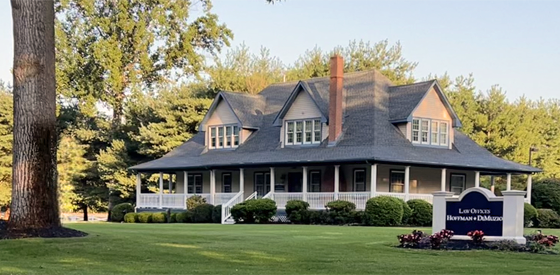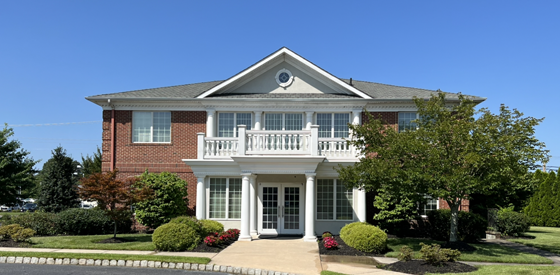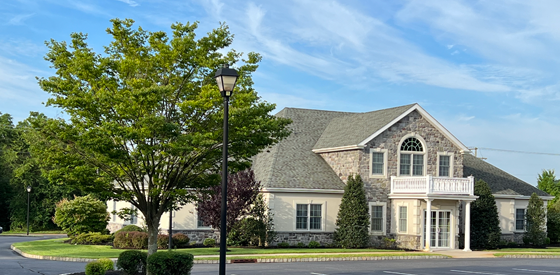- Joseph J. Hoffman, Jr.
- Kenneth A. DiMuzio, Sr.
- Ernest L. Alvino, Jr.
- Anooshay Asim
- Jeremiah J. Atkins
- Peter J. Bonfiglio III
- Vincent Campo
- James M. Carter
- Donald Caruthers, III
- John P. Ciocco
- Kenneth A. DiMuzio, Jr.
- Christine DiMuzio Sorochen
- Michael W. Glaze
- Leonard L. Grasso, Jr.
- Robert P. Grossman
- Joseph J. Hoffman, III
- Richard S. Hoffman, Jr.
- Ryan S. Hoffman
- Cristie R. Nastasi
- J. R. Powell
- Joseph J. Slachetka
- Charles J. Sprigman, Jr.
- James S. Taylor
- Robert J. Wiltsee

From leaky windows to noisy neighbors, find out what should and should not be listed on a real estate disclosure before renting or buying your next property.
Today Your Legal Corner will discuss “Real Estate Disclosures.”
Each year, we celebrate our independence on the 4th of July. Our forefathers drafted our Declaration of Independence which states, in part, we hold these truths to be self-evident, that all men are created equal, that they are endowed by their Creator with certain unalienable Rights, that among these are Life, Liberty and the Pursuit of Happiness.
The pursuit of happiness can take many forms but buying or renting a home of your own is certainly one of them. Whether you are just starting out and saving for your first home or looking to downsize in your twilight years, you want to be certain there are no surprises.
In your pursuit of happiness, please remember to review the landlord or seller’s disclosure forms and more when selecting a property.
What is a disclosure?
Disclosure statements provide information to a prospective renter or buyer about the property they may be considering to rent or purchase. There are various kinds of disclosures. Some are required by law to be provided while others are not.
Disclosures detail information on the property and surrounding area. For example, a leaky window would be considered a known defect that is contained on the property, whereas noisy neighbors is an off property nuisance. Known defects on the property are required to be disclosed under New Jersey common law, whereas some off property defects may require due diligence on the part of the buyer.
On and off property disclosure
Not only should known defects be disclosed, home improvements should also be contained in a contract. Check to make sure that all proper permits have been secured for any improvements. For a renter, the main issue is safety.
For example, if electrical work has been completed and has not been properly inspected, there is no guarantee that the work has been completed safely. This could be a fire hazard for you and your family.
Search the surrounding area where you may wish to reside is another important issue often overlooked by renters and buyers.
Importantly and sometimes forgotten, the new Residential Construction Offsite Conditions Disclosure Act requires certain offsite lists be contained in each municipality. Contaminated sites are listed at the municipal building.
The reasoning behind this law is for most people, the purchase of a home is their largest investment and off site contamination can greatly affect the value of a particular dwelling, not to mention the families health and safety. For this reason, the clerk of each municipality must make available lists identifying of offsite conditions existing within a municipality.
The bottom line is whether you are a renter or a buyer, exercise due diligence, when relocating. Take the time to assess an overall area, speak with neighbors who already reside there, check the municipality and the local police department.
By doing so, you can be assured that your pursuit of happiness will include a safe home for you and your family!
Till next time, God bless, keep smiling, when Your Legal Corner will discuss “Financial Exploitation of the Elderly.” Victoria M. Dalton is an attorney with the law offices of Hoffman DiMuzio.
 Victoria M. Dalton is an attorney with the law offices of Hoffman DiMuzio.
Victoria M. Dalton is an attorney with the law offices of Hoffman DiMuzio.
For questions, contact Victoria at [email protected].
Please note that Your Legal Corner was created to provide educational articles about the law and is not legal advice.
Submitting this form does not create an attorney-client relationship, but a lawyer from our firm will contact you as soon as possible.


















